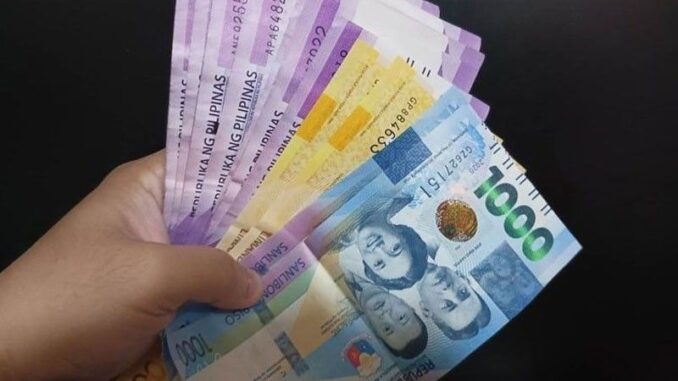
MANILA, Philippines — The government recorded a narrower budget deficit of P54 billion in August as non-tax collections drove revenue growth coupled with a slight decline in state spending.
Data from the Bureau of the Treasury showed that the Marcos administration recorded a budget shortfall of P54.2 billion in August.
Last month’s fiscal turnout is 59 percent lower than the P133 billion deficit in the same period last year.
Still, a budget deficit means that the government is spending beyond what it earned from revenue collections although at a slower pace this time around.
For the eight-month period, the budget deficit also went down by almost five percent to P697 billion from P732.5 billion as revenues outpaced spending growth from January to August.
Data showed that total revenue collection in August jumped by more than 24 percent to P386.3 billion as against the P310.6 billion in the same period last year, as both tax and non-tax revenues increased.
The bulk or 83 percent of the revenues came from tax collections at P320.2 billion, rising by 10 percent. Non-tax collections, on the other hand, soared by nearly four times to P66.1 billion in August.
The Bureau of Internal Revenue’s haul improved by 11.5 percent to P238.1 billion while the Bureau of Customs managed to post a five-percent increase in collection to P78.5 billion.
Further, income generated by the Treasury surged by 163 percent to P16.5 billion, largely driven by the P10 billion settlement of guarantee fee arrears of the Power Sector Assets and Liabilities Management (PSALM) Corp., as well as higher income from the Philippine Amusement and Gaming Corp.
Collections from other offices including privatization proceeds and fees and charges for the month also almost quadrupled to P49.6 billion.
Year-to-date, cumulative revenue collections picked up by 16 percent to reach P2.99 trillion.
On the other hand, data showed that government spending in August slipped by 0.68 percent to P440.5 billion from P443.6 billion in 2023.
Primary expenditures at P387.8 billion accounted for 88 percent of the total spending, also down by 3.27 percent.
The Treasury said the slightly reduced spending for the month was due to lower total subsidy releases to government corporations and the sizable outstanding checks recorded in the Departments of Public Works and Highways, Social Welfare and Development and Health during the month.
Outstanding checks represent payments made by line departments for the delivery of goods and services but are not yet presented for encashment at the banks by the concerned contractors or payees.
As such, these remain under the accounts of spending agencies in authorized government depository banks and are not yet considered as actual disbursements.
Apart from primary expenditures, the government nonetheless jacked up its interest payments by 24 percent to P52.8 billion from P42.7 billion a year ago.
For the eight-month period, disbursements rose by 11 percent to P3.69 trillion.


Be the first to comment